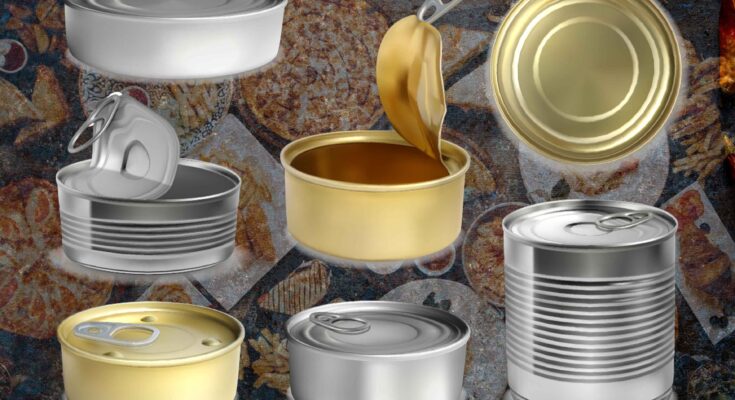Canned food is a staple food in almost all household diets because it an accessible, pocket-friendly, and also durable option. Whether you are stocking up for emergencies, opting for convenience meals, or just interested in extending the life of certain food items, being familiar with how long canned foods last is a must. In this comprehensive guide we will explore the shelf-life of canned food, the factors that determine its lifespan and tips for maintaining their safety and quality.
Understanding Shelf Life – How Long Can Canned Food Last:
The shelf life of canned foods is much longer than fresh or frozen. The preservation employs sealing food in hermetic packages and heating them to eliminate bacteria, enzymes, and other microorganisms which makes it go bad. This tight sealing protects the food from additional contamination keeping the food fresh and nutritional during the storage.
Though canned goods are made to last for a long time they are not totally immune from decay. The shelf life of canned food differs depending on several factors among them being types of food, storage conditions and the presence of preservatives. In general, most canned goods have a “best by” or “use by” date printed on the packaging by the manufacturer which reflects the recommendation for their best quality.
Factors Affecting Shelf Life:
Type of Food: Different canned food types have distinct storage times. Most often low-acidity foods, for instance vegetables and soups, meats last much longer than the numbers of 2 years and more when it is carefully stored. High-acid foods here refers to tomatoes, fruits and pickled products that have a short shelf life, about 1 to 2 years.
Storage Conditions: Correct storage ensures that canned food remains good both in terms of quality and safety. Keep canned items in a cool, dry place without direct sunlight and between 3 and 15 degrees Celsius. Do not store them near hot or damp areas like stoves, dishwashers or sinks as these conditions will accelerate spoilage of items and promote bacterial growth.
Packaging Integrity: Look out for damaged or corroded cans before use. Do not consume foods from cans that are dented, bulged, leaky or rusted since they may have packaging that is compromised which could lead to contamination or spoilage.
Temperature Fluctuations: Canned products can be damaged by overexposure to extreme temperatures. Temperature fluctuations including freezing or overheating might cause the cans to expand or contract changing the seal shape, thus letting bacteria enter.
Tips for Ensuring Safety and Quality:
Rotate Stock: Its important to implement FIFO type of rotation to make sure older canned goods are consumed before the newer ones. It also reduce food waste and you get to consume those items before they expire.
Check Expiration Dates: Although canned food can be eaten after its expiration date if properly stored, one needs to always check for any signs of spoilage prior to eating. Throw away all the cans that have visible damages, leaks or odd smells.
Store Properly: Store canned goods in a cool, dry area, ideally in a pantry or cupboard out of direct sunlight and away from heat sources. Do not keep the cans in places such as garages or basements which have high temperature fluctuations.
Use Safe Handling Practices: Upon opening of canned food, check for any abnormalities, like strange smells, colors or textures. If the food has gone bad or looks questionable throw it away.
Conclusion:
Canned food is so easy to store and comes in very handy in providing the balanced meals throughout the year. Through appreciation of the elements that define the shelf life of canned foods and adherence to correct storage and also handling systems, you will be able to preserve them for long thus ensuring that you have quality and also safe food in the house to last for months or even years. Whether it’s for emergency purposes, simplifying meal preparation time or saving, the canned food is an indispensable source for the homes of any size.




